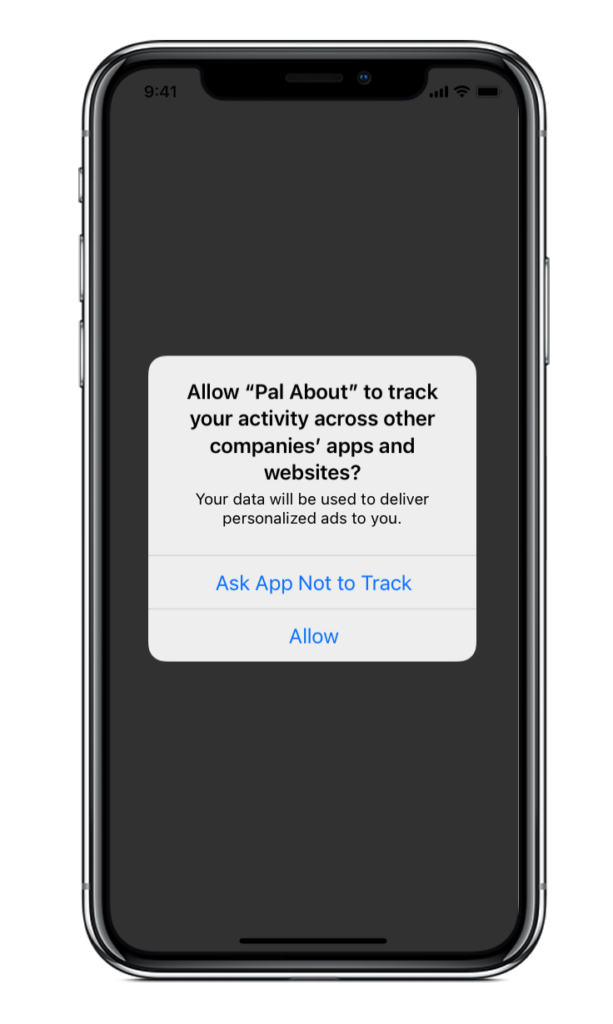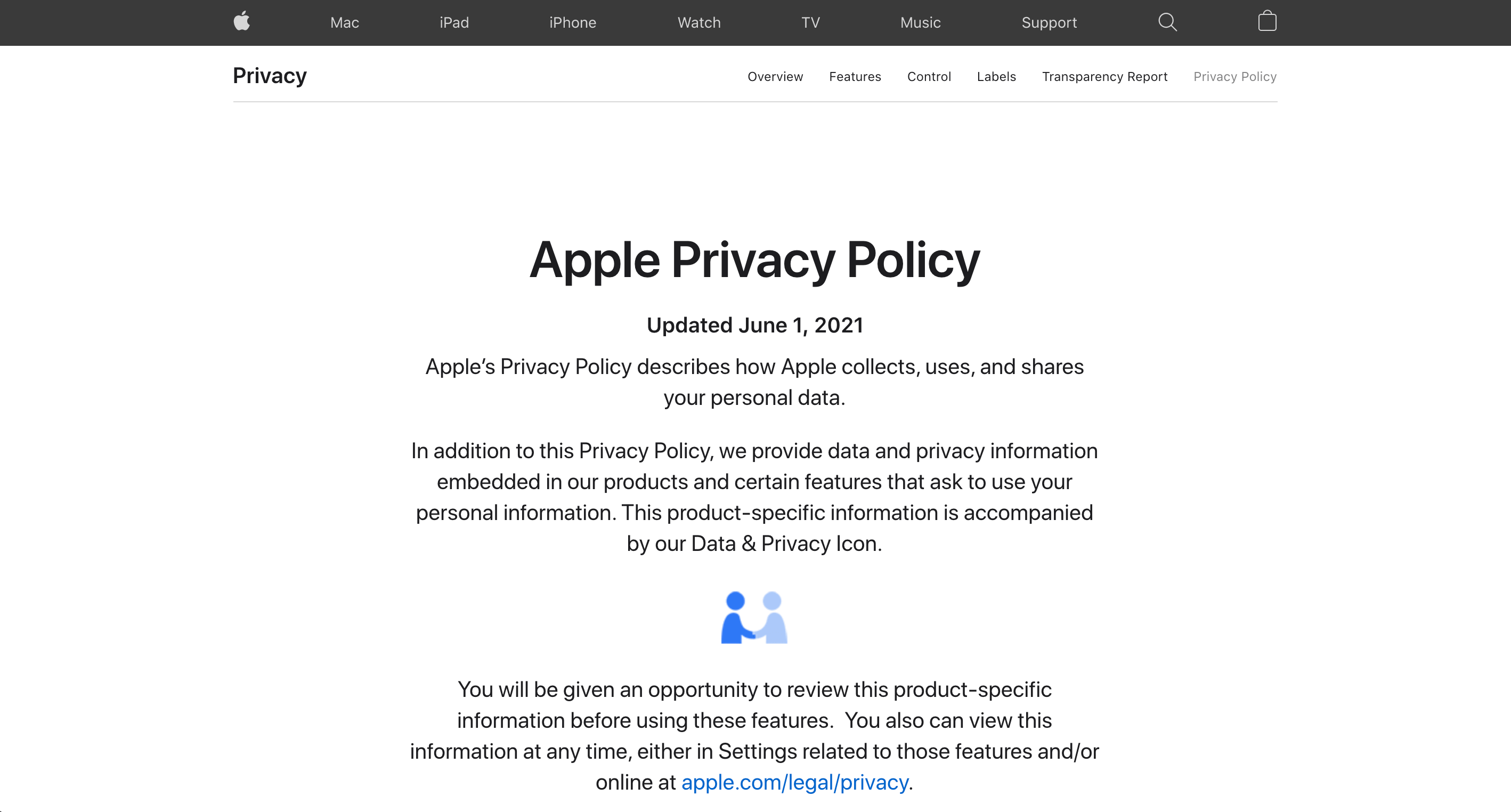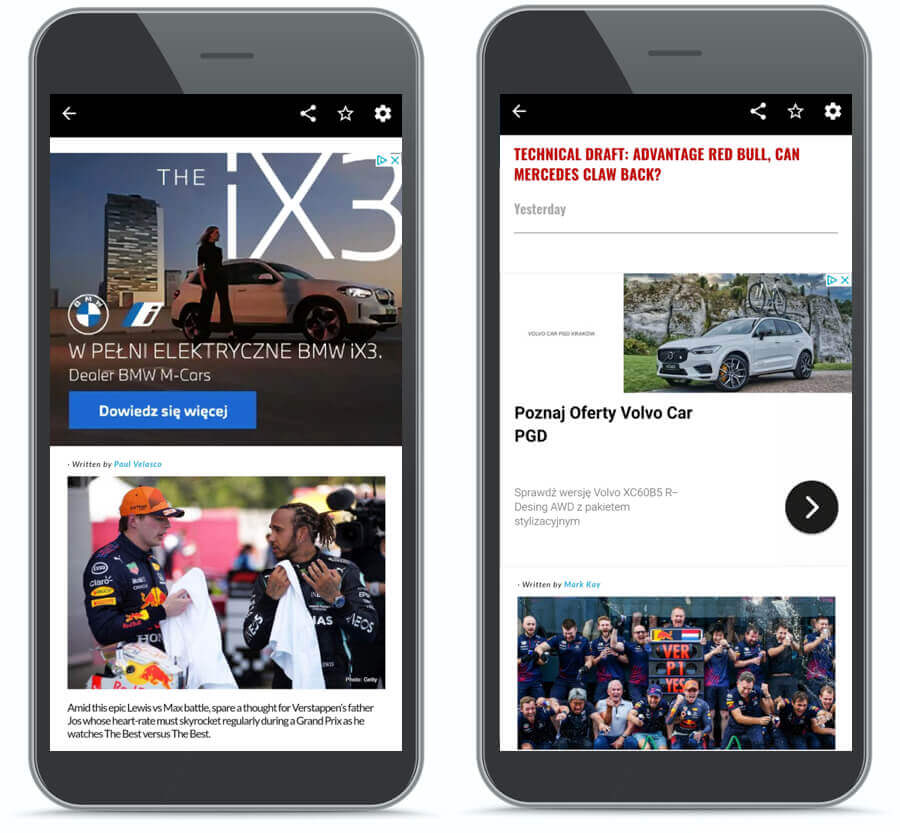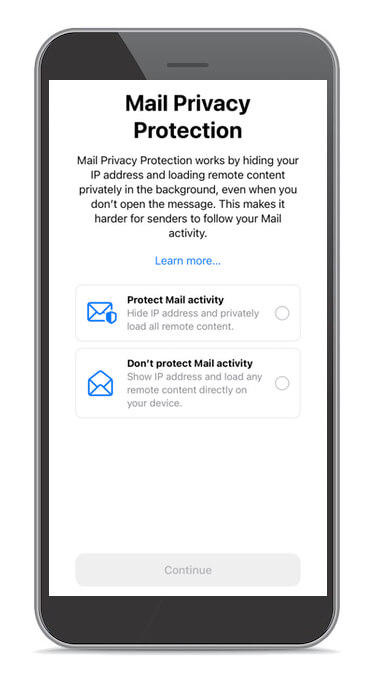Apple is a company that needs no introduction. Together with Facebook and Google, it dominates the technological world and sets the tone for different kinds of businesses. Each, even the smallest change these big three introduce can have a huge impact on the whole world. This is what has happened recently due to announce the new privacy policy by Apple. It’s time to say it loud and clear: magazine publishers are real winners of this situation.
Who would have thought that such a little change would make so much noise?
Guided by the belief that privacy is a fundamental human right and one of their core values, Apple decided to facilitate people’s access to privacy policy settings. They don’t ban tracking but will require app creators to obtain consent from their users to track them.
This little step can make big changes in the advertising market, what many entrepreneurs worry about. However, all the signs indicate that the magazine publishers can sleep peacefully because they can become secure business partners for advertisers.
What changes will Apple introduce? How will it influence magazine publishers? If you want to know answers to these questions, read on.
What will Apple exactly change into their privacy policy?
Apple has been consistently building brand loyalty through caring for the user, what they’ve proven, for example, by introducing the App Store Small Business Program which reduces taxes from in-app purchases.
This time, their announcements caused a bit of buzz, especially among large companies basing their business models on advertising. Is there really anything to worry about?
Let’s figure it out.
How many times have you changed the privacy settings in the mobile apps you downloaded? We all have such a possibility. It is up to us whether we allow companies to collect our data or not. The problem is, I guess, not many of us know about it and what follows, change it manually.

That’s where Apple came in. Their idea changes everything by changing a little. Theoretically, everything remains as it was because we’ll still modify privacy settings as we could do it so far. It just will get easier. We won’t have to remember about it, spend time looking for the settings, and wonder what to turn off. Instead, we’ll automatically receive a notification that will ask us for consent to track and collect data.
All thanks to the features of the next iOS 14 updates. After updating the operating system on Apple devices, every app will have to obtain the user’s explicit consent to track his activity. Importantly, Apple also decided that each app creator will have to inform users how he tracks them and give a specific reason for collecting data.

On the developer.apple.com we can read:
“The App Store is designed to be a safe and trusted place for users to discover apps created by talented developers around the world. Apps on the App Store are held to a high standard for privacy, security, and content because nothing is more important than maintaining users’ trust. In order to submit new apps and app updates, you need to provide information about some of your app’s data collection practices on your product page. And starting with iOS 14.5, iPadOS 14.5, and tvOS 14.5, you’ll be required to ask users for their permission to track them across apps and websites owned by other companies.”
Why did Apple decide to activate App Tracking Transparency feature? What’s their goal?
Apple has been consistently building the image of a company that cares about the privacy policy. The purpose of the introduced changes is not only to strengthen this message but also to improve the brand’s transparency and empower users by helping them take control over their data.
“Privacy means peace of mind, it means security, and it means you are in the driver’s seat when it comes to your own data” – said Craig Federighi, Apple’s senior vice president of Software Engineering.

We can expect that Apple’s direction will remain unchanged in the future, and they’ll be creating technology that keeps people’s information safe and protected. From the user’s point of view, in the age of fake news, and a decline in trust in social media, Apple’s plans sound reasonable and reassuring.
So what’s all the fuss about?
Apple’s modification will force far-reaching changes to the advertising ecosystems of Google, Facebook, and other data-driven businesses. It will be more difficult for them to target ads to users, what in consequence, can reduce revenue.
The opponents of Apple’s changes claim that when users, after launching an app, are clearly asked whether they agree to track their activity, most will want to disable this feature.
What will be the consequences of Apple’s changes for businesses?
The new privacy policy can change the business profiles of various companies, both those offering places to advertise and those using ads to promote themselves. It will disrupt the data of the campaigns targeted at people with Apple devices, so marketers can draw erroneous conclusions from the analysis of the results. This will be most significant to companies that use automated ad sales and have numerous customers who are iPhone users.
Paradoxically, Apple’s changes can be beneficial for publishers. How it’s possible?
Apple’s new privacy policy is favorable for magazine publishers
The direction in which the ads are going is good news for magazine or newsletter publishers, especially those who have their own apps. Their value will increase in the eyes of advertisers.
Let’s analyze the situation when a magazine monetizes thanks to ads.
Imagine: a publisher of a magazine for Formula 1 fans has its own mobile app. The sources of his revenue are ads. A reader using iPhone downloads the app, then a notification asks him if he wants to be tracked, and he replies “no”. What’s going then? Neither the publisher nor the advertiser gets any data about the reader; they don’t know what he reads, when he does it, etc.
Is it really so?
Magazine publishers are entrepreneurs whose clients are usually concentrated around a specific topic and interests. It’s usually a well-defined group. I’ll show you the example of PressPad’s customer – Grand Prix 247. They are providing non-stop Formula 1 news coverage on their website and in the mobile app.

As you can see on the above screenshots, there are car ads in this Formula 1 magazine. Will they be seen by the target audience interested in cars? Answer yourself. Even refusing to collect data may not affect the success of the advertising at all (for example, DuckDuckGo generates revenue thanks to advertising while upholding privacy policy – when you type in a search, they can show an ad just based on that search term). If the advertiser places the same car ad in a general-interest magazine, probably fewer readers will be interested in his product.
Simply speaking, it’s not about reaching a million people with your ad but to reach the thousand people who are really interested in product it presents.
Choosing a magazine focused on a specific topic will be a better decision for the advertiser than put an ad on Facebook or Instagram. Magazine publishers not only target their content to a specialist group but thanks to mobile apps and their features (push notifications, possibility to save articles, etc.) make readers don’t miss new content and… advertisement. Advertisers when choosing which publication will attract the right consumers, should consider not only the type of magazine but also the age and gender of their readers as well.
The niche magazines will gain the most – their readers are more centered and organized around their niche. This provides a special insight into this group.
Niche magazines have great monetization possibilities and this is not the first time we can say it (they are the ones who gain big profits on the introduction of a paywall model, too). Why should advertisers turn to them?
- Niche publishers have a dedicated market and well-profiled readers.
Ads that are well adjusted to the magazine profile will get in front of a target market – a group of people who are most likely going to be really interested in the product; niche magazines offer content to people with significant interest, and even passion, in the particular topic.
- Smaller magazines engage readers more.
This is partly related to the above point – in more general magazines, readers choose the content that interests them by making a selection; in the case of niche magazines readers are engaged with the content because it just interests them; they give it their full attention what is transferred to engagement.
- People trust niche magazines.
According to Pulse Magazine, magazines covering specific topics like current affairs, hobbies, and motoring score especially well, with up to 78% of readers regarding them as the most trustworthy source of information.
- These magazines are usually regional or geographical focused.
People are more concerned with the content and the area that concerns them what’s a great deal for local advertisers.
In the face of various changes introduced by giant technology companies, advertisers will increasingly turn to trusted publications that have an established audience in their market. As social media become more and more untrustworthy and uncertain, publishers will gain value.
Just like their newsletters.
Apple’s changes don’t concern only ads
The upcoming iOS update except for the influence on collecting data and displaying targeted advertisements will change a few more issues.
Examples of changes in tracking include, but are not limited to:
- sharing device location data or email lists,
- sharing a list of emails and advertising IDs, that uses that information to retarget users in other apps or to find similar users.

Basically, aside from the changes in ads settings, email tracking is the biggest modification. The Mail Privacy Protection will launch later this year – between September and November – and will affect iOS 15, iPadOS 15, and macOS Monterey devices.
As CNN described, “The email app on Apple devices will now hide users’ IP addresses and their location, so companies sending emails can’t link that information to users’ other online activity. Additionally, senders can’t see if or when users open their email”.
How will this affect publishers?
Those who send newsletters could be concerned. However, they shouldn’t.
Of course, they won’t know if their emails are actually opened. The open rate seemed to be an important part of how newsletter publishers sell their ads – as well as how they judge the relative success or failure of email campaigns.
In fact, much more important than how many people have opened your email is how many subscribers you have, or how many people have actually clicked on your previous ads.
“Writers can triangulate reader engagement by plenty of metrics that are still available to them, including the views their stories get on the web, the overall growth of their mailing list, and — most meaningful of all — the growth of their revenue” claims Casey Newton, the writer from Platformer.
— What about ads placed in the newsletter?
If open rates are gone publishers will need to find another way not only to see how their emails have been performing but also to convince advertisers that they have an attentive audience.
The niche magazines have the advantage again. Their readers are interested in their content. If publishers select proper information for them, they will open the emails for sure.
There’s something else everyone should remember about.
This new Apple’s feature will impact any emails users read using the Mail app on Apple devices, regardless of the email client. When people use Gmail (even on an iPhone), all the data will be collected. The new Mail Privacy Protection features apply only to the Apple Mail app.
The Pathwire’s report about email engagement in 2021 shows that only 13,3% of respondents use Mail app to open and read private emails. 52,3% of people use other apps like Gmail – this group still subject to data collection.
It’s all about trust… again
The big scream that Facebook raised after Apple’s announcement could only be the voice of the big advertising companies. You may also find that ultimately the advertising world may be more upset by Apple’s privacy updates than the changes themselves.
Emily Ryan who is a user experience developer working with the US Department of Justice’s civil rights division noted that transparently asking users for permission to track them could be a great opportunity to increase trust.
“It just depends upon how you think about your business and whether or not long-term customer trust is really important to you,” she said.
If people trust you as a brand and love your content, you will achieve good results. And they will speak for themselves when it comes to working with advertisers.

